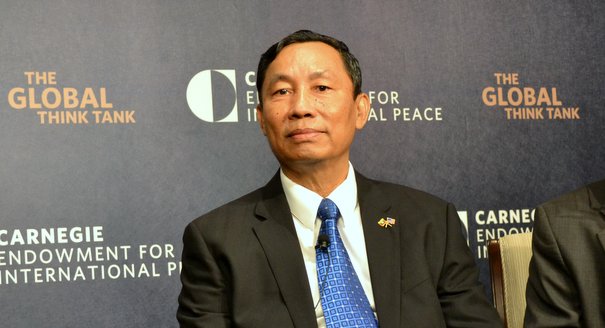Registration
You will receive an email confirming your registration.
Myanmar’s voters will go to the polls this fall in what could be the most important elections in the country’s history. These elections will choose representatives for the national parliament’s upper and lower houses as well as assemblies in Myanmar’s fourteen regions and states. Subsequently, an electoral college of parliamentarians, including representatives from the armed forces, will choose the country’s next president. Will the elections be free and fair? Which forces will influence the build-up to the elections? What are the elections’ likely outcomes?
These questions were explored in a conversation with Thura Shwe Mann, speaker of Myanmar’s lower house of parliament and possible presidential candidate. Carnegie’s Vikram Nehru moderated.
This was the first in a series of events to be held this year focusing on Myanmar’s 2015 elections, which is jointly supported by the Carnegie Endowment for International Peace, the Asia Society Policy Institute, and Southeast Asia Studies Department of Johns Hopkins University School of Advanced International Studies.
Thura Shwe Mann
Thura Shwe Mann is a Myanmar politician who was appointed speaker of the lower house of Myanmar’s parliament in 2011 and became Union Parliament speaker in 2013. As chairman of the ruling Union Solidarity and Development Party, he is likely to be a presidential contender in the 2015 elections.
Vikram Nehru
Vikram Nehru is a senior associate in Carnegie’s Asia Program. His research focuses on the economic, political, and strategic issues confronting Asia, particularly Southeast Asia. Follow him on Twitter @VikramNehru.
